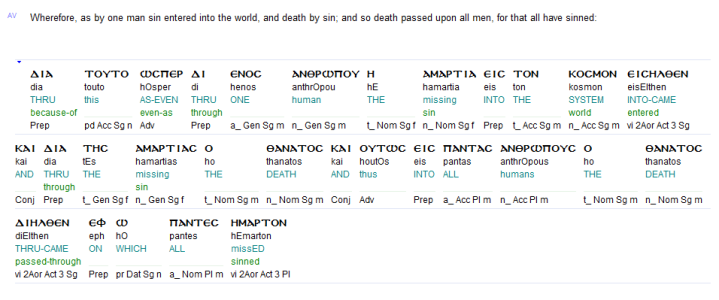Rom 5:13 for sin indeed was in the world before the law was given, but sin is not counted where there is no law.
We can come at this from several angles. I'll start with your lie.
You have no evidence that Abel sinned. How did Abel sin?
Why are you lying about Abel? Do you expect to see Abel one day? How are you going face Abel with your false charges?
You take sin lightly.
Noah — “Righteous” but Drunken and Exposed
Righteousness: Genesis 6:9 – “Noah was a righteous man, blameless in his generation. Noah walked with God.”
Sin: Genesis 9:20–21 – “Noah… drank of the wine and became drunk and lay uncovered in his tent.”
Though Noah is described as righteous, he ends up in a state of disgrace, which leads to a familial curse (on Canaan, via Ham). Jewish tradition debates whether this was a sin, but the context strongly suggests impropriety and a break in dignity.
2. Abraham — Man of Faith, but Deceptive
Righteousness: Genesis 15:6 – “He believed the LORD, and he counted it to him as righteousness.”
Sin: Genesis 12:11–13 and 20:1–2 – Twice Abraham lies about Sarah being his sister, endangering her and deceiving others.
These episodes are not condemned directly in the narrative, but they show Abraham’s willingness to mislead and protect himself at the expense of truth and even his wife’s honor.
3. Moses — The Servant of the LORD, but Disobedient
Righteousness: Numbers 12:7 – “My servant Moses; he is faithful in all my house.”
Sin: Numbers 20:10–12 – Moses strikes the rock at Meribah contrary to God’s command; God punishes him by forbidding entry into the Promised Land.
Psalm 106:32–33 interprets this as rashness and disobedience. Moses himself confesses his fault in Deut 3:26.
4. David — A Man After God’s Heart, yet an Adulterer and Murderer
Righteousness: 1 Samuel 13:14 – “The LORD has sought out a man after his own heart.”
Sin: 2 Samuel 11 – David commits adultery with Bathsheba and orchestrates the murder of her husband Uriah.
Psalm 51 is David’s confessional lament, and 2 Sam 12:13 records his repentance after Nathan’s rebuke.
This is the clearest and most acknowledged case of a “righteous” man whose sin was publicly condemned, punished, and forgiven.
5. Job — Blameless, but Later Rebuked for Presumption
Righteousness: Job 1:1 – “Job was blameless and upright, one who feared God and turned away from evil.”
Sin: Job 38–42 – God rebukes Job for speaking without knowledge; Job repents in dust and ashes (Job 42:6).
Though Job is not said to have committed a moral transgression, his words are judged as presumptuous (cf. Job 40:2, “Shall a faultfinder contend with the Almighty?”).
6. Jacob — Patriarch, but Deceiver
Righteousness: Genesis 35:9–12 – God reaffirms His covenant with Jacob, renaming him Israel.
Sin: Genesis 27 – Jacob deceives his father Isaac, at his mother’s urging, to obtain the blessing meant for Esau.
Though God’s covenant proceeds through Jacob, the narrative does not conceal his trickery and manipulation.
7. Solomon — Wise King, but an Idolater in Old Age
Righteousness: 1 Kings 3:12 – God gives Solomon unmatched wisdom.
Sin: 1 Kings 11:4–10 – Solomon’s heart is turned after other gods; “his heart was not wholly true to the LORD his God.”
Solomon's apostasy leads directly to the division of the kingdom (1 Kings 11:11–13).
8. Hezekiah — Faithful King, but Prideful
Righteousness: 2 Kings 18:5 – “There was no one like him among all the kings of Judah, before or after.”
Sin: 2 Chronicles 32:25–26 – “But Hezekiah did not make return according to the benefit done to him, for his heart was proud.”
God’s wrath came upon Judah temporarily because of Hezekiah’s pride, though he humbled himself afterward.
9. Jonah — Prophet of the LORD, but Disobedient and Angry
Righteousness: Commissioned by God as a prophet to Nineveh.
Sin: Jonah 1:3 – “But Jonah rose to flee to Tarshish from the presence of the LORD.”
Jonah resists God’s mercy to Gentiles and desires judgment instead of repentance (Jonah 4:1–3).
Despite being God’s chosen instrument, Jonah’s selfishness and disobedience are front and center.
Summary Table
Name Declared Righteous Specific Sin Mentioned Scriptural Reference
Noah Gen 6:9 Drunkenness Gen 9:21
Abraham Gen 15:6 Deception Gen 12, 20
Moses Num 12:7 Disobedience Num 20:10–12
David 1 Sam 13:14 Adultery, murder 2 Sam 11
Job Job 1:1 Presumption Job 38–42
Jacob Gen 35:9–12 Deception Gen 27
Solomon 1 Kgs 3:12 Idolatry 1 Kgs 11
Hezekiah 2 Kgs 18:5 Pride 2 Chr 32:25–26
Jonah Jonah 1:1–2 Rebellion, anger Jonah 1–4
I can give you many more examples but this should suffice.
We are NOT born sinless into this world.
J.

